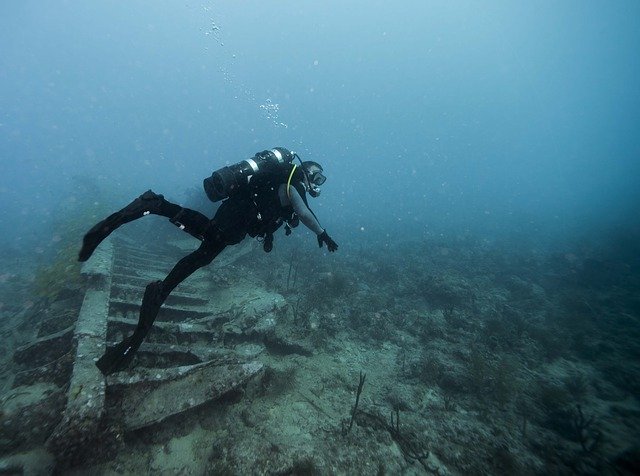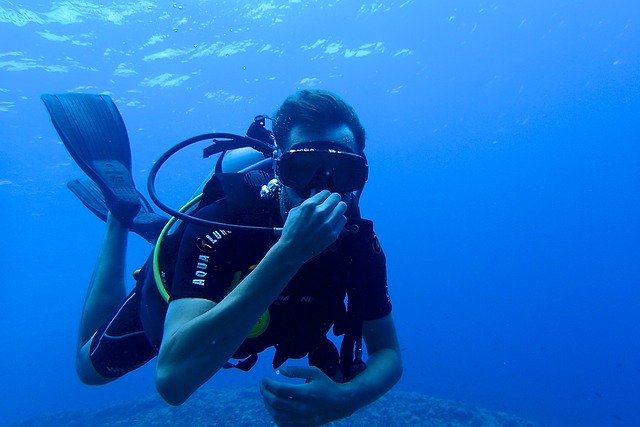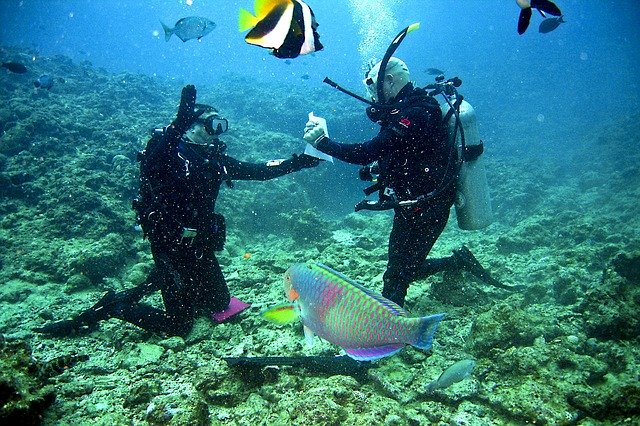You probably have heard about scuba diving many times by now, it is a very popular sport, and it has reasons to be! The experience is amazing! I mean, swimming and breathing under the water? Yes, please!

Although, as exciting as this can sound, it’s not something you can just get yourself into without the correct safety measures and training. As a beginner in any sport, you need to learn the rules of the game before starting, and that’s what this article is about; scuba diving might not have the conventional rules most sports have, but they are very important, that’s why I am listing them to you.
Diving Schools
Make some research on the diving schools you might be interested into, they vary in the kind of water they practice (warm or cold), the sea life in their respective areas, the accreditation cost, etc.
You need to choose someplace you feel comfortable with the surroundings and the teachers, keep that in mind.
And you have to stay safe while on training so take a good look at the reviews each school has, see how other divers’ experiences have been in said school and they have any complaints about the security measures or the administration itself.

Practice Relaxing Activities Before Your Training
It’s normal to feel a little nervous before engaging yourself in a sport like this one, especially if you have never practiced it before, so for easing those nerves try practicing swimming or yoga for a while before you start your driving course. Yoga is for helping you concentrate on your breathing, and swimming for practicing holding control of your body while underwater.
Check Your Equipment
Always, always check your dive equipment before going underwater. Look for the signs of faulty equipment: broken buckles, the air that smells or tastes funny, air leaks, and a jumping needle on your air gauge when you take a breath out of your regulator.
One of the most common mishaps while diving is having your regulator (the breathing device) knocked out of your mouth. This isn’t normally serious trouble, but it can cause divers of all levels a lot of stress. Your instructor will be teaching you how to reach towards your lower back and recovering your regulator, and practice this until it because an instinctive action.
Avoid Diving with an Underwater Camera
At least for your first few dives, even if the school tells you it’s okay. It can be more distracting than entertaining or exciting.
Take seasickness pills if you’re prone to seasickness.
Ask your guide or instructor whatever questions you may have, no matter how silly you think they are. Trust me, there aren’t silly questions at this.
Don’t dive if you have a cold or a respiratory or ear infection, it will be nearly impossible to equalize.
Cover whatever open wounds you may have on your body.
Or avoid diving at all if this is the case, especially if you’re intending to get near coral reefs, where the human skin is more prone to infection. Wear your wetsuit, or protect the wound with gauze and waterproof tape.
Know the signs and symptoms of nitrogen narcosis before trying to get into any deep dives.
Don’t panic.
Keep a level head. Most of the diving accidents are caused solely by panic, and if you keep calm you can get out of whatever diving situation you might get into. Practice meditation and breathing techniques if necessary.
Always keep breathing. Never hold your breath.
Always stay close to your guide and follow his or her instructions.
Check your air.
Beginner scuba divers frequently don’t realize how much air they consume and have a habit of breathing more than advanced divers. Always check on your device and let your guide know when you’re low.

Never disturb sea life.
I know all the things you might see and discover underwater are most probable to be wonderful and breath-taking but some of the sea creatures that you may encounter can be aggressive or poisonous and certainly won’t be happy to have some weird human messing with them.
Besides, poking or chasing them is bad for the environment.
Give the other divers enough space to move around without crashing with you.
Even though you’ll be under the water at the moment, look up every once in a while. It’s usually where the larger sea creatures or schools of fish come out to play.
If you have to grab another diver’s attention, do so by making noise hitting lightly against your tank with a tank banger.
